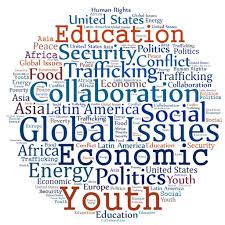Harnessing Indigenous Knowledge for Sustainable Global Development: A Synergistic Approach
Sustainable development, encompassing poverty eradication and environmental stewardship, necessitates a paradigm shift beyond conventional models. The exclusion of Indigenous Peoples and their invaluable knowledge systems represents a critical gap in achieving these goals. This article examines the profound contributions of Indigenous Knowledge (IK) to sustainable development, emphasizing the urgent need for global cooperation and the protection of Indigenous rights. We define Indigenous Knowledge as the cumulative body of traditional practices, beliefs, and knowledge accumulated by Indigenous communities through generations of intimate interaction with their environment. This encompasses ecological understanding, sustainable resource management, traditional medicine, and socio-cultural practices.
The Interplay of Indigenous Knowledge and Sustainable Development
1. Environmental Stewardship and Resource Management: Indigenous communities often exhibit a profound understanding of ecosystem dynamics, honed through centuries of observation and adaptation. Their practices, including sustainable agriculture, agroforestry, and traditional conservation methods, provide valuable insights for enhancing biodiversity and resource management. Applying ecological modernization theory, we can understand how IK’s integration into mainstream practices can foster ecological efficiency and sustainability. For instance, indigenous agroforestry systems, showcasing functional biodiversity and efficient resource utilization, offer alternatives to resource-intensive, ecologically damaging modern agriculture, thus aligning with the principles of ecological modernization.
2. Traditional Medicine and Healthcare: Indigenous knowledge encompasses a vast pharmacopoeia of medicinal plants and healing practices. Ethnobotany, the study of plant use in different cultures, demonstrates the potential for discovering novel therapeutics from traditional medicinal knowledge. Integrating IK into modern healthcare systems improves access to healthcare, particularly in underserved areas. The World Health Organization's framework for Traditional Medicine underscores the importance of safe and effective integration, highlighting the benefits of collaborative research and standardized practices.
3. Climate Change Adaptation and Resilience: Indigenous communities have historically demonstrated exceptional adaptability to environmental change. Their understanding of climate patterns, risk management strategies, and sustainable resource use offers crucial lessons for mitigating climate change impacts. Applying resilience theory, we observe how IK contributes to community resilience by strengthening adaptive capacity and promoting sustainable livelihoods in the face of climate change. Their knowledge of early warning signs and community-based adaptation strategies serves as a blueprint for developing more robust and community-centered climate adaptation plans.
4. Cultural Preservation and Empowerment: The recognition and respect of IK are intrinsically linked to safeguarding cultural diversity. This not only preserves cultural heritage but also empowers Indigenous communities, ensuring their meaningful participation in decision-making processes that affect their lands and resources. The application of social justice theories highlights the imperative of respecting Indigenous rights and self-determination as a prerequisite for sustainable development. Empowerment, within a framework of participatory development, ensures IK is not merely appropriated but valued and integrated equitably.
5. Knowledge Exchange and Collaborative Partnerships: Fostering collaborative partnerships between Indigenous communities, researchers, and policymakers is crucial for the effective integration of IK into sustainable development initiatives. This involves mutual respect, reciprocal knowledge exchange, and equitable benefit-sharing. Applying co-creation principles, the collaborative approach ensures the development of context-specific solutions, respecting local needs and values. This also addresses potential power imbalances and ensures authentic knowledge transmission rather than mere extraction.
Conclusion and Recommendations
Sustainable development hinges on the recognition and integration of IK. Ignoring this invaluable resource undermines progress towards global goals. The analysis presented underscores the multifaceted contributions of IK to environmental stewardship, healthcare, climate change adaptation, cultural preservation, and community empowerment. Recommendations include promoting collaborative research initiatives with Indigenous communities, supporting capacity building programs that preserve and transmit IK, and actively integrating IK into policy and decision-making processes at all levels. Furthermore, the development of ethical frameworks for knowledge exchange and benefit-sharing is crucial for ensuring that IK is respected and its use leads to equitable outcomes. Future research should focus on analyzing the effectiveness of IK integration in specific contexts, documenting best practices, and exploring innovative approaches for knowledge sharing and technology transfer. The long-term impact of these actions will be a more just, sustainable, and resilient future, guided by the wisdom of Indigenous Peoples.
Reader Pool:
Considering the interconnectedness of sustainable development goals and the crucial role of Indigenous Knowledge, what innovative strategies can be implemented to ensure equitable and effective integration of IK into global development frameworks?



